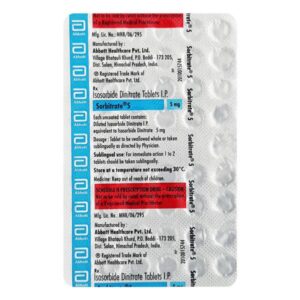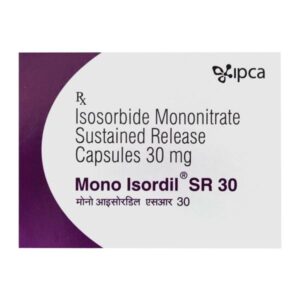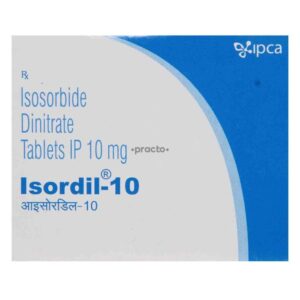ISOSORBIDE DINITRATE
ISOSORBIDE DINITRATE: Isosorbide Dinitrate is a medication that belongs to the class of drugs called nitrates. It is primarily used in the treatment and prevention of angina (chest pain) caused by coronary artery disease. Isosorbide dinitrate helps to widen the blood vessels and improve blood flow to the heart, which reduces the workload on the heart and decreases the frequency and severity of angina attacks.
The mechanism of action of isosorbide dinitrate involves the release of nitric oxide (NO) in the smooth muscles of the blood vessels, causing them to relax and dilate. This relaxation allows for more blood to flow through the blood vessels, improving oxygen supply to the heart muscle.
The dosage of isosorbide dinitrate may vary depending on the individual, their condition, and the severity of symptoms. Typically, the medication is available in tablet or extended-release capsule forms, and it can be taken orally. The usual starting dose for adults is 5 to 20 mg of immediate-release tablets, taken two to three times a day. For the extended-release capsules, the usual starting dose is 40 mg once daily.
Like all medications, isosorbide dinitrate can cause side effects. Common side effects may include headaches, dizziness, lightheadedness, flushing, nausea, and vomiting. These side effects are usually temporary and may resolve as the body adjusts to the medication. However, if these side effects persist or worsen, it is advisable to consult a healthcare professional.
In rare cases, isosorbide dinitrate can cause more serious side effects such as low blood pressure, rapid or irregular heartbeat, fainting, and allergic reactions. If any of these severe side effects occur, immediate medical attention should be sought.
It is important to note that isosorbide dinitrate is a prescription medication, and the dosage and treatment regimen should be determined by a healthcare professional based on individual needs and medical condition.



